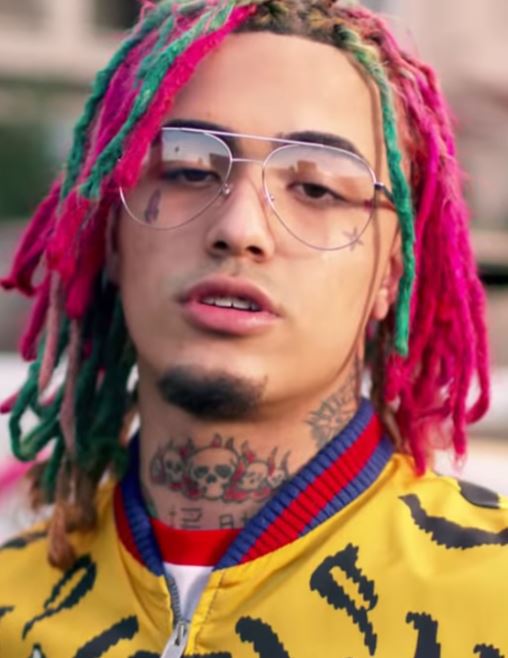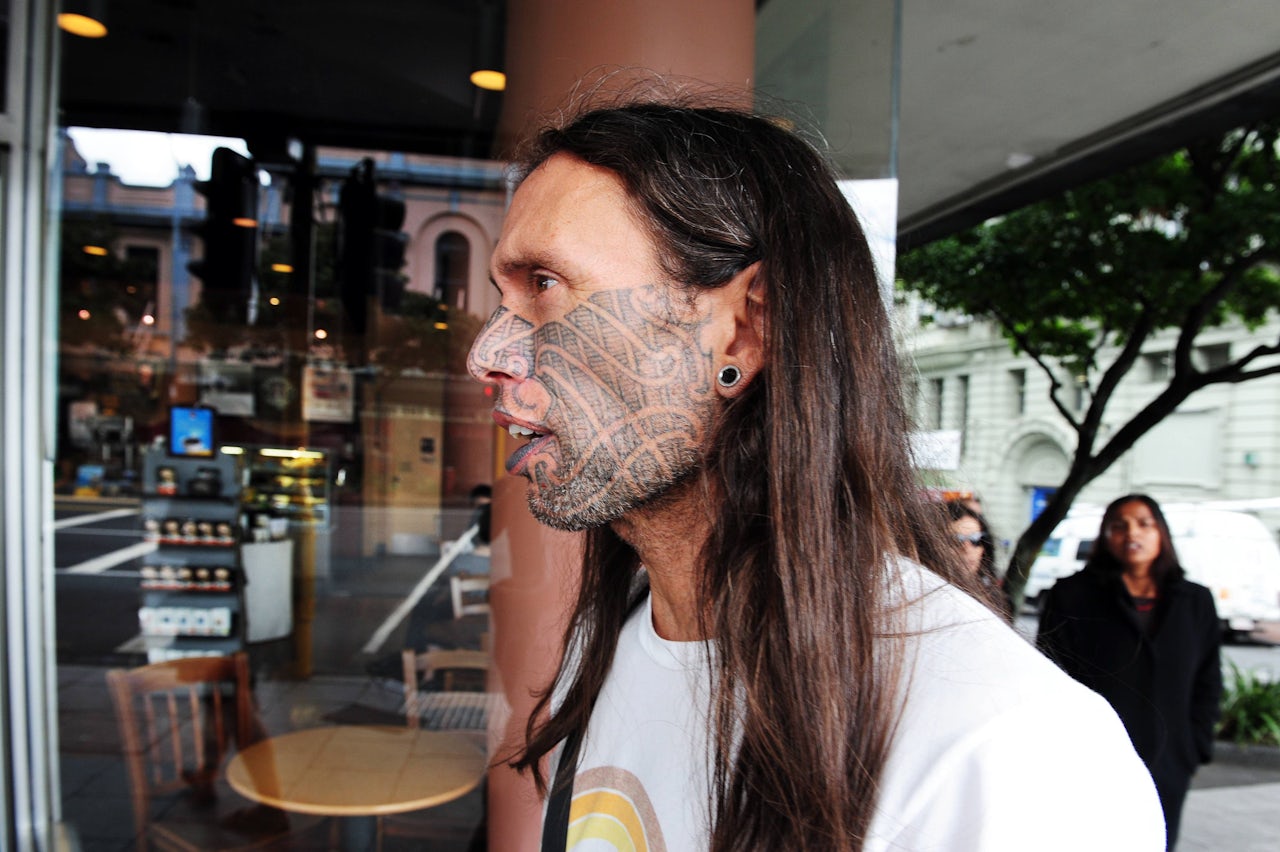White Rapper Face Tattoos: A Bold Trend Redefining Style And Identity
White rapper face tattoos have become a significant cultural phenomenon, capturing the attention of both fans and critics alike. The world of hip-hop has always been a melting pot of self-expression, and now, white rappers are pushing boundaries by incorporating facial tattoos into their personal branding. It's not just about aesthetics; it's about making a statement, embracing individuality, and challenging societal norms. So, are you ready to dive into this bold trend? Let's break it down.
In recent years, the hip-hop scene has seen an influx of white artists rising to prominence. These artists are not only redefining what it means to be a rapper but are also experimenting with their appearance. Facial tattoos, once reserved for hardcore punk rockers or hardcore hip-hop artists, have now crossed over into mainstream popularity. It's fascinating how these inked expressions have become a symbol of authenticity and rebellion.
But why face tattoos? Why are white rappers choosing this particular form of body art to express themselves? Is it a trend, a statement, or something deeper? In this article, we'll explore the rise of white rapper face tattoos, their cultural significance, and the controversies surrounding them. We'll also delve into the stories of some prominent white rappers who have embraced this look, shedding light on their motivations and the reactions they've received.
Read also:Sidney Greenbush Movies And Tv Shows A Deep Dive Into Her Career
Understanding the White Rapper Phenomenon
Before we dive into the world of white rapper face tattoos, let's first understand the phenomenon of white rappers in general. The presence of white artists in hip-hop has sparked debates about cultural appropriation, authenticity, and the evolution of the genre. Artists like Eminem, Machine Gun Kelly, and Post Malone have paved the way for a new generation of white rappers who are unafraid to break stereotypes.
For many of these artists, being a white rapper is not just about the music—it's about creating a unique identity that stands out in a predominantly Black art form. Facial tattoos have emerged as a powerful tool in this quest for individuality. They allow these artists to visually communicate their values, struggles, and aspirations without uttering a single word.
Why Are White Rappers Getting Face Tattoos?
The decision to get a face tattoo is deeply personal and varies from artist to artist. For some, it's about paying homage to the roots of hip-hop, while for others, it's about asserting their place in a genre that has traditionally been dominated by Black artists. Here are a few reasons why white rappers are opting for face tattoos:
- Authenticity: Facial tattoos can serve as a permanent reminder of an artist's commitment to the culture and their craft.
- Rebellion: In a world where conformity is often rewarded, facial tattoos are a bold statement against societal norms.
- Self-Expression: Artists use tattoos to tell their stories, whether it's about their struggles, triumphs, or personal beliefs.
- Brand Building: In the competitive music industry, having a distinctive look can set an artist apart from the crowd.
Exploring the Cultural Significance
Facial tattoos have a rich history that predates their current popularity in hip-hop. In various cultures, they have been used as symbols of status, spirituality, and identity. For white rappers, adopting this form of body art can be seen as both a nod to these traditions and a way to carve out their own cultural space within hip-hop.
However, this trend is not without its controversies. Critics argue that white rappers with face tattoos may be guilty of cultural appropriation, taking elements of Black culture without fully understanding or respecting their origins. On the other hand, supporters believe that art and self-expression should transcend racial boundaries, allowing anyone to participate in and contribute to the culture.
Debunking Myths About White Rapper Face Tattoos
There are several misconceptions surrounding white rapper face tattoos. Let's address some of the most common ones:
Read also:Stitch Cup With Mouth On Bottom A Fun And Trendy Drinkware Revolution
- Myth: It's Just a Passing Trend: While trends come and go, facial tattoos are a permanent commitment. They require careful consideration and planning, making them more than just a fleeting fashion statement.
- Myth: All White Rappers With Face Tattoos Are Copycats: Not every artist who gets a face tattoo is doing it to imitate others. Many have unique reasons and stories behind their choices.
- Myth: It's Only for Attention: While some may argue that face tattoos are a publicity stunt, for many artists, they represent something much deeper and more meaningful.
Meet the Artists: Profiles of White Rappers With Face Tattoos
To better understand the trend, let's take a closer look at some of the most notable white rappers who have embraced face tattoos. These artists have not only made waves in the music industry but have also sparked conversations about identity, culture, and self-expression.
Machine Gun Kelly: The Pioneer
Machine Gun Kelly, born Colson Baker, is one of the most prominent white rappers with face tattoos. Known for his edgy style and rebellious attitude, MGK has incorporated tattoos into his look to reflect his punk rock and hip-hop influences. His facial tattoos include a striking rose on his cheek and various other designs that tell his story.
Post Malone: The Trendsetter
Post Malone, whose real name is Austin Richard Post, has become a household name in the music industry. His face tattoos, including a teardrop under his eye and a rose on his cheek, have become iconic symbols of his brand. Post Malone's tattoos not only enhance his aesthetic appeal but also convey his emotional depth and connection to the culture.
Trippie Redd: The Visionary
Trippie Redd, born Michael Lamar White III, is another white rapper who has embraced face tattoos as part of his identity. His tattoos, which include a teardrop and various symbols, reflect his journey and his connection to the hip-hop community. Trippie Redd's unique style has inspired countless fans to express themselves through body art.
The Art of Tattooing: A Closer Look
Facial tattoos are not just about the end result; they're also about the process. The art of tattooing involves careful planning, skilled craftsmanship, and a deep understanding of the client's vision. For white rappers, choosing the right tattoo artist and design is crucial in ensuring that their tattoos align with their personal and professional goals.
Tattoo artists who specialize in facial tattoos must possess a high level of expertise and precision. They work closely with their clients to create designs that are both meaningful and visually striking. This collaboration between artist and client is what makes facial tattoos such a powerful form of self-expression.
Tips for Getting a Face Tattoo
If you're considering getting a face tattoo, here are a few tips to keep in mind:
- Do Your Research: Choose a reputable tattoo artist with experience in facial tattoos.
- Plan Carefully: Decide on a design that reflects your personality and values.
- Consider the Maintenance: Facial tattoos require proper care and maintenance to ensure they remain vibrant and intact.
- Be Prepared for Reactions: Understand that getting a face tattoo may elicit strong reactions from others, both positive and negative.
Controversies and Criticisms
No discussion about white rapper face tattoos would be complete without addressing the controversies and criticisms surrounding them. As with any cultural phenomenon, there are differing opinions on the appropriateness and implications of white rappers adopting this form of body art.
Critics argue that white rappers with face tattoos may be perpetuating stereotypes or exploiting elements of Black culture for their own gain. They question whether these artists truly understand the historical and cultural significance of facial tattoos or if they are simply using them as a marketing tool.
Responding to Criticism
Artists who have faced criticism for their face tattoos often respond by emphasizing their genuine connection to the culture and their personal motivations for getting inked. They stress that self-expression should not be limited by race or ethnicity and that art is a universal language that can bring people together.
Conclusion: The Future of White Rapper Face Tattoos
White rapper face tattoos have undoubtedly made a significant impact on the music industry and popular culture. They challenge societal norms, encourage self-expression, and spark important conversations about identity and authenticity. While the trend may continue to evolve, one thing is certain: it has opened the door for a new generation of artists to redefine what it means to be a rapper.
So, what do you think? Are white rapper face tattoos a bold statement of individuality, or are they a controversial form of cultural appropriation? We'd love to hear your thoughts in the comments below. And if you enjoyed this article, don't forget to share it with your friends and check out our other articles for more insights into the world of music and culture.
Table of Contents
- Understanding the White Rapper Phenomenon
- Why Are White Rappers Getting Face Tattoos?
- Exploring the Cultural Significance
- Debunking Myths About White Rapper Face Tattoos
- Meet the Artists: Profiles of White Rappers With Face Tattoos
- The Art of Tattooing: A Closer Look
- Tips for Getting a Face Tattoo
- Controversies and Criticisms
- Responding to Criticism
- Conclusion: The Future of White Rapper Face Tattoos


